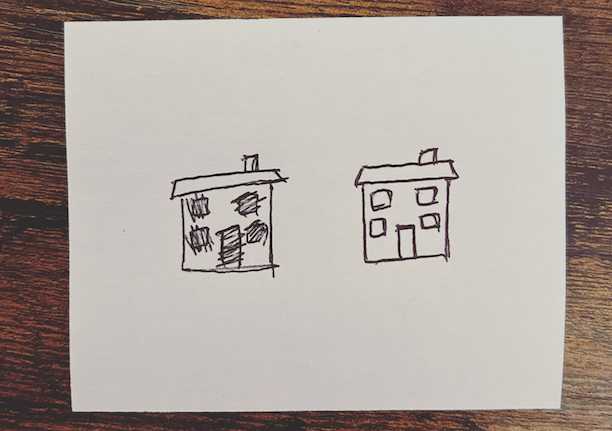
This week’s Lenten Offering is written by Nicola Patton, a Ph.D. student at Radbaud University and member of our church familia.
Years ago, we hosted a weekly small group in our house. Sometimes I dreaded the evening depending on how much we’d let the house go in the six days between the last meeting. But have you seen how quickly people can move through a house and get it clean before company comes over?! That became my personal benchmark – how quickly can I get everything clean and tidy before anyone shows up?
Then it became a thing any time someone was coming over. (Or maybe it had always been a thing.) And I always felt a twinge of shame any time someone caught me unawares and came over just to be, just for fun. I felt the need to apologize for … for what? For living in our own house? My husband often said, “It looks lived in. That’s a good thing.” Always the right words, that guy.
But what was I actually ashamed of? That my friends would see my life, actually lived? Did I judge their mess – or even notice it – when I showed up unannounced to their homes?
Truth is, I didn’t. I loved their homes exactly as they were. And when I could tell they were lived in, I felt more at home.
Confession is like that.
Confession is not a term we like to hear. For some, it evokes images of squirming in an uncomfortable wooden chair, listing out the worst of ourselves to a screen behind which another person sits, waiting to absolve us. For others, it sounds a lot like exposure, of forced vulnerability couched in obligatory spirituality. And for still others, it is an empty gesture, a stilted ritual that leaves us more empty than before.
I prefer to think of confession apart from those images and using a different term helps me move away from that. I think of it as acknowledgment. And that is really all it is: acknowledgment of what is or what was.
How can we move on without that acknowledgment? It’s awkward, uncomfortable, vulnerable, painful. But it’s necessary.
And if we go further down, repentance can’t happen without confession.
Repair can’t happen without acknowledgment.
We can’t heal from something we haven’t acknowledged.
Pastor Bobby reminded us of the truth of messy houses on Ash Wednesday, saying,
“Our lives are messy. But naming all that messiness with honesty is actually a marker of our humanity.”
Community should be about having the safety to acknowledge the things we have done or not done. And it’s scary and vulnerable and we feel exposed. But we can’t move on without it.
Confession is just acknowledgment: to ourselves, to others, to God.
Can we show others our truly lived selves? Can we acknowledge the flaws and the dust and neglected parts? Can we open that door to God? To ourselves?
“May the God of peace make you holy & whole.” … in all your lived self.
